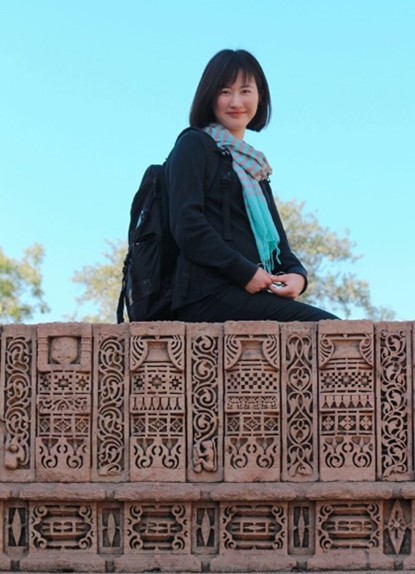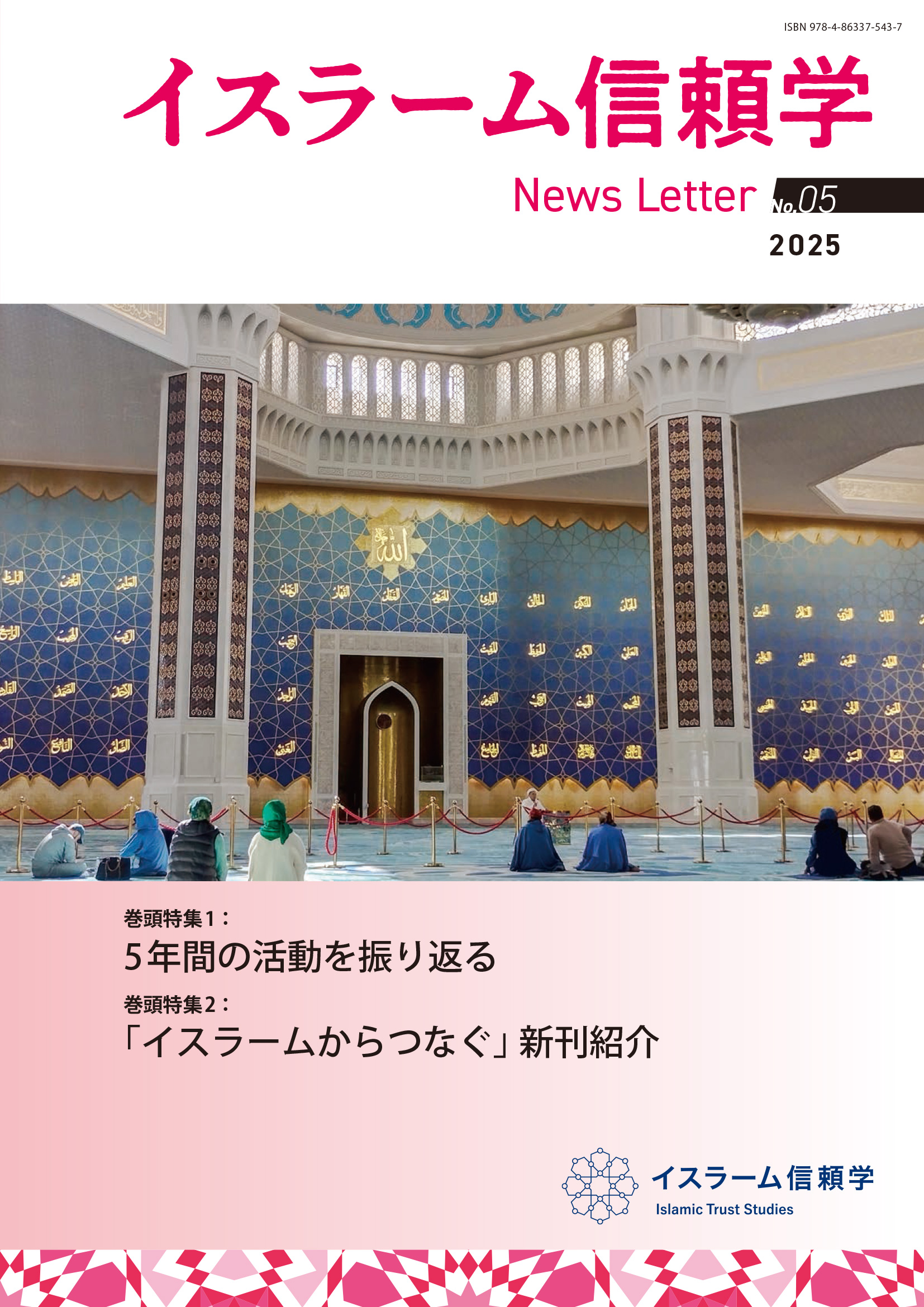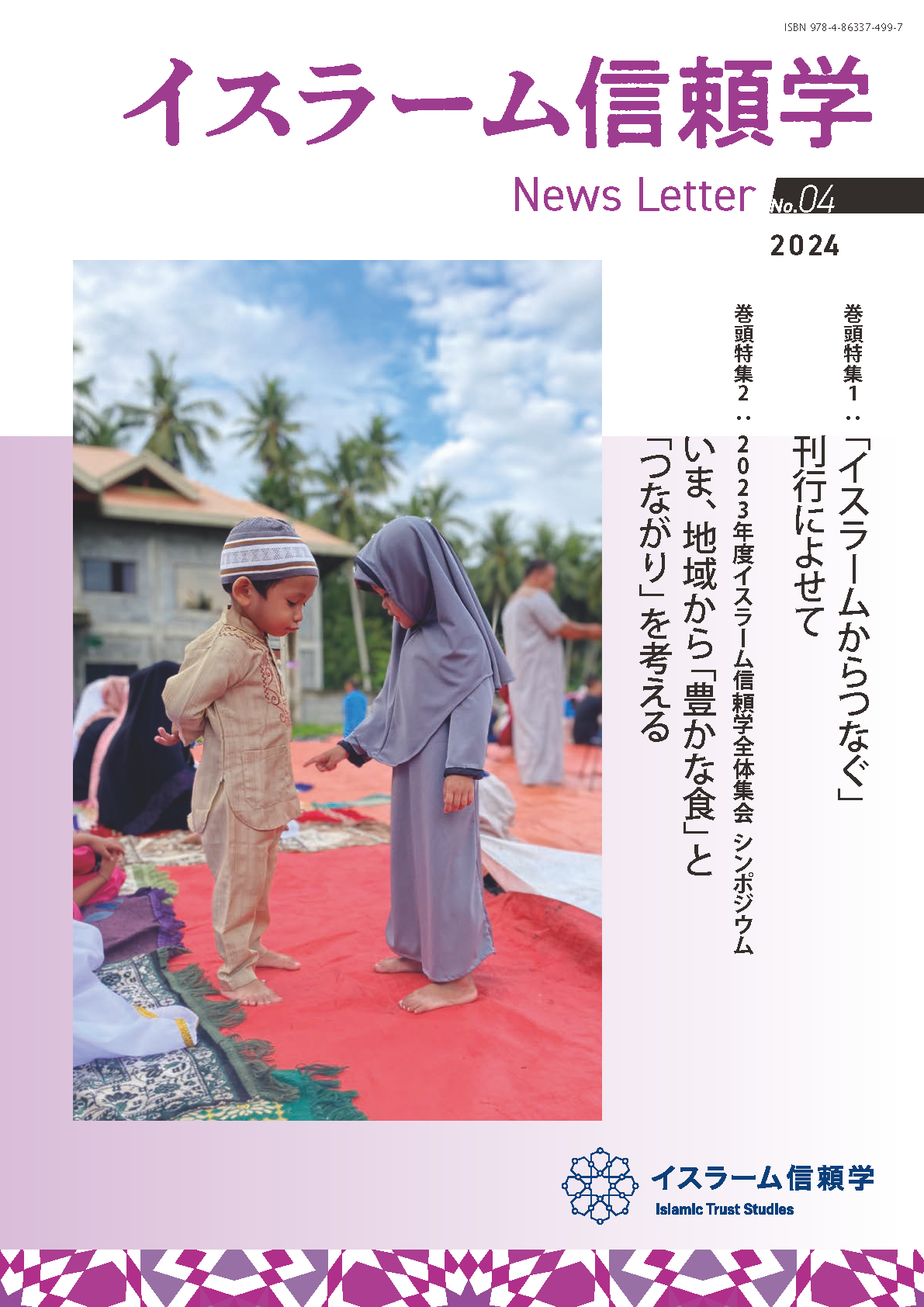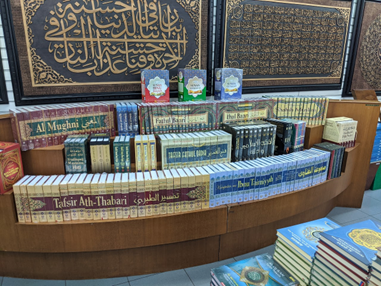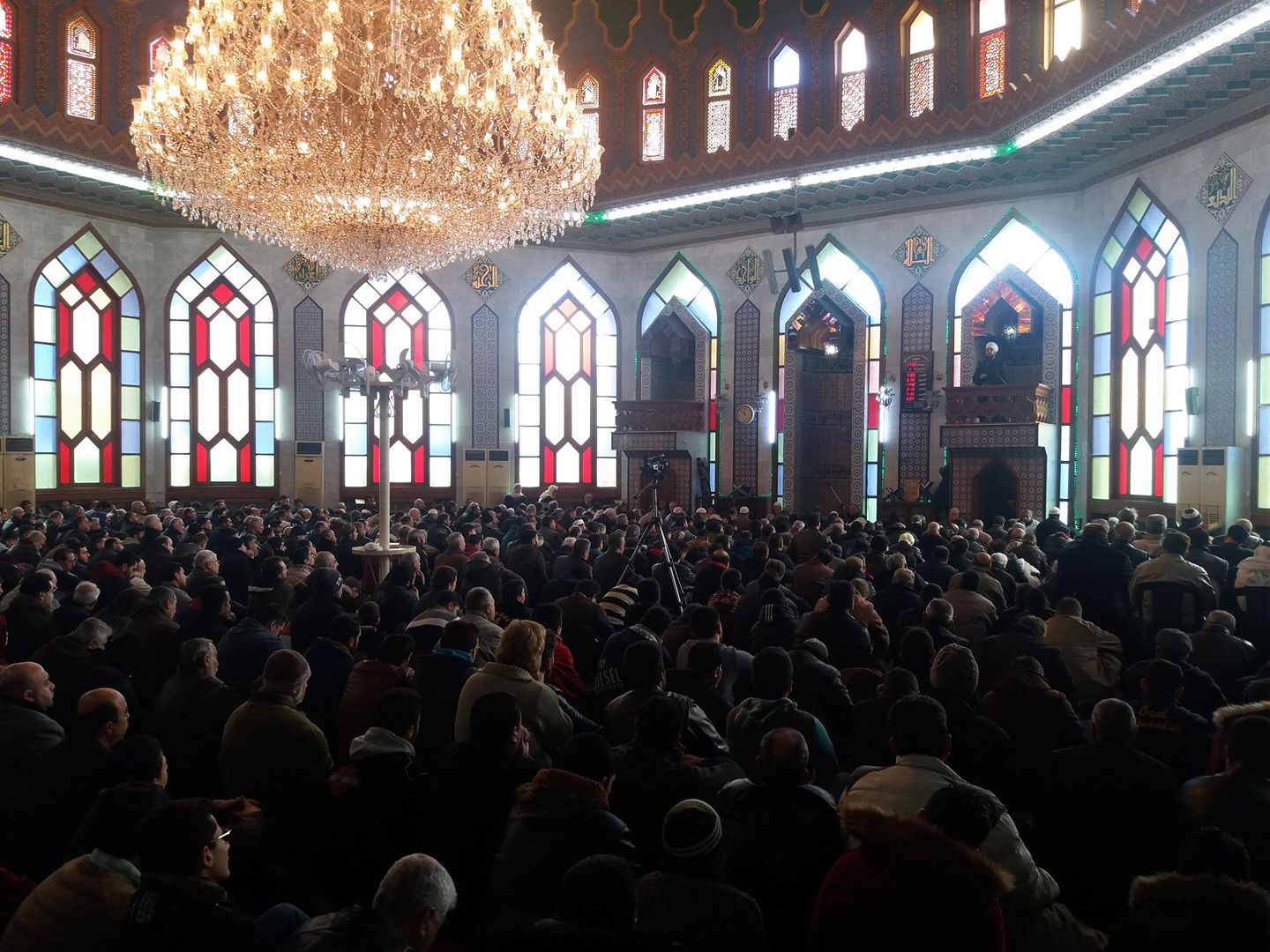Blog #18 “Human rights norms from the viewpoint of Islam”
2023.11.01
Category: Blog
Author: 池端 蕗子
Values and norms continually change throughout our history.200 years ago, the norm “Men are born and remain free and equal in rights” (Article 1 of the Declaration of the Rights of Man and of the Citizen) advocated for during the French Revolution that began in 1989, was an epoch-making idea (norm) for people in a society where there was a clear class distinction between the nobility and the common people, and where the rights of the common people were substantially restricted as a matter of course. However, today, the norm “All human beings are born with rights” is widely accepted as a doctrine we should advocate for, even though it may never be perfectly achieved. Namely, human rights are regarded as one of the universal international standards in our time.
We can estimate the international acceptance of human rights norms by certain criteria: which human rights resolutions have been adopted in the United Nations; which country agreed/disagreed to which resolution; or which international convention the country ratified. In 1948, the United Nations adopted the Universal Declaration of Human Rights. The declaration formed the International Covenants on Human Rights in 1966. The Organization of Islamic Cooperation (OIC)(*1) has 57 member states now, and they account for about 30 percent of the 193 member states of the United Nations. Many of these countries have also ratified the International Covenants on Human Rights. It may be considered that following international norms is a national strategy of obtaining political trust among the international community. Certainly, human rights policies are often used as national strategies. On the other hand, efforts have been made within the Islamic world to comply with human rights norms. We will look at both sides in this article.
(*1) OIC recognizes Palestine and admits the country as a member state. Syria has been suspended as a member state since 2012.

Head office of the Organization of Islamic Cooperation (OIC) in Jeddah, Saudi Arabia. (Photo by author. October 2022)
Islamic countries have often been criticized for human rights violations. When the 2022 FIFA World Cup was held in Qatar, the situation of immigrant workers and the LGBTQ issues drew criticism by the Western media as a human rights issue. The oppressive policies against women in Iran and the prohibition of women’s education by the Taliban in Afghanistan are also viewed with a critical eye as human rights issues. Needless to say, human rights violations should be criticized. The problem is the appearance of a bias that Islam’s teachings themselves are incompatible with the ideal of “human rights”.
Some studies has pointed out that the formation of international norms and laws including “human rights” has developed in the relation of the Christian Enlightenment. Muslim-majority countries are sometimes skeptical of the formation of Western-centric “human rights” and criticism based on them, which seems to them to be imposed by the Western world. For example, concerning one of the human rights “freedom of expression,” the Islamic world clearly rejects to include insulting caricatures of the Prophet Muhammad and insists that freedom of insulting a religion is not acceptable in the name of “freedom of expression”.
After the September 11 attacks in 2001, opinions associating the Islamic religion itself with terrorism and violence have spread. Muslim-majority countries had to stand up to reductionist explanations stating that such problems have been caused by the Islamic religion; Islam itself creates terrorism and violence; Islam’s teachings themselves are contrary to the ideal of “human rights”.
Under these circumstances, Islamic jurists (ulama) have been trying to reinterpret what “human rights” are. That is to say, they have been trying to define “what are human rights” from an Islamic standpoint based on the Qur’an and hadith in accordance with Islamic juristic process.
The Islamic (Sunni) world has no ulama hierarchy such as the Catholic Church, and no system for establishing something like a “unified Islamic legal opinion”. Historically each ulama in each region has established new rules about new techniques and systems which have appeared as times change, based on their own knowledge. This kind of reinterpretation of Islamic jurisprudence called ijtihad has been continuously practiced, and that is the very reason why Islam has continued to flexibly change over time since its birth in the eighth century.
Since the establishment of the nation state system, in each country of the Islamic world ulama who belong to state institutions have proposed their legal opinions, which have influenced national policies. In addition, as a new global movement, some international organizations have been established to assemble ulama throughout the Islamic world, to discuss mutual problems, and to propose views representing the Islamic world. The Organization of Islamic Cooperation (OIC) has held international conferences such as the Islamic Summit for the political subjects of the member states. The International Islamic Fiqh Academy (IIFA), a subsidiary organization of the OIC, assembles ulama from the member states of the OIC to discuss subjects in order to propose a unified juristic view beyond nationality, religious sects, and jurisprudences. It is an activity called “collective ijtihad.” It is an unparalleled phenomenon in the history of Islamic thought that ijtihad – historically given by individual ulama – is carried out in an international group of ulama who have gathered from all over the world.
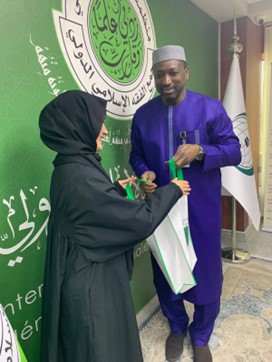
The author (left) interviewing Dr. Koutoub Sano, Secretary General of IIFA (right) in the IIFA head office. (Photo by author. October 2022)
The international conferences of ulama held by IIFA included one concerning “what are human rights”. In December 2001, just after the September 11 attacks, a resolution titled “Human Rights in Islam” was published. Citing the verse [30:30] of the Qur’an, the resolution defines as follows; “Human Rights in Islam refer to privileges arising from the Divine honor bestowed by Allāh the Almighty on human beings which everybody is compelled to respect and observe as outlined in Sharia criteria and conditions”.
In addition, IIFA adopts various resolutions on specific cases. They also held a conference discussing the issues concerning the Taliban’s prevention of women’s education, and Dr. Koutoub Sano, the Secretary General of IIFA delivered a statement criticizing the existing conditions of the restriction on women’s education under the control of the Taliban. His statement includes words such as “The education of males and females is considered a legal duty in Sharia, and this is indicated by blessed verses from the Holy Qur’an and authentic hadiths from the honorable Sunnah of the Prophet, and no significant disagreement was mentioned about it among scholars.” (*2). It was a criticism exclusively given from an Islamic viewpoint on the existing situation of the violation of women’s human rights.
(*2) Quoted from Official homepage of the IIFA, “IIFA Statement on Denying Afghan Girls the right to School and University Education (23 December 2022)” (https://iifa-aifi.org/en/41095.html)
We should keep in mind that the “interpretation of human rights from the viewpoint of Islam” sometimes advocated by states can be an ideology based on political interests. It could be considered as a strategy for refuting the international community’s concern that human rights violations are committed in the countries. Therefore, it is undeniable that the international conferences of the Islamic countries and their representative Islamic jurists may be complicit in this strategy. On the other hand, it is notable that the ulama are actually creating new norms for this new era and creating a consensus beyond the religious sects and jurisprudences. They never deny human rights norms. They only use an Islamic perspective to establish the necessity of defending human rights. My research considers it to be a international trust-building activity concerning norms.
How have ulama interpreted “human rights” norms which have a certain influence in the international community? Which positions have the Islamic countries taken on the norm creation? In my research, I would like to elucidate the “Islamic interpretations of human rights norms” both as a new movement in the history of Islamic thought and as a strategy of Islamic countries, focusing on the activities of international organizations such as OIC and IIFA.

Book hunting in a bookstore area of Amman, Jordan. (Photo by September 2022)

